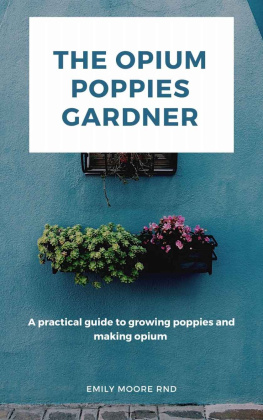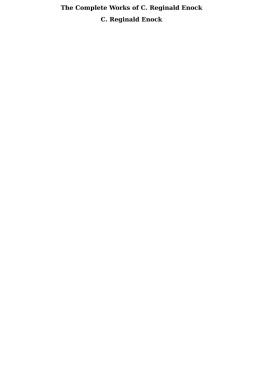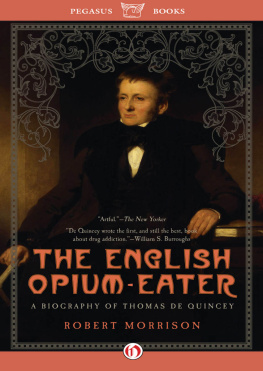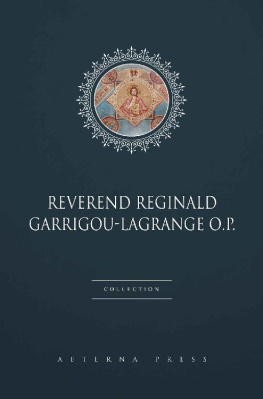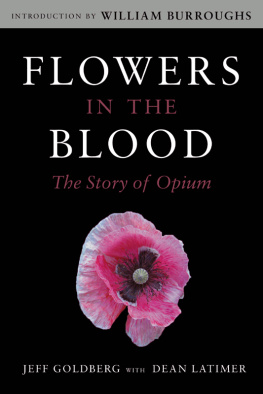Charles Reginald Haines - A Vindication of Englands Policy with Regard to the Opium Trade
Here you can read online Charles Reginald Haines - A Vindication of Englands Policy with Regard to the Opium Trade full text of the book (entire story) in english for free. Download pdf and epub, get meaning, cover and reviews about this ebook. year: 2019, publisher: Bod Third Party Titles, genre: Romance novel. Description of the work, (preface) as well as reviews are available. Best literature library LitArk.com created for fans of good reading and offers a wide selection of genres:
Romance novel
Science fiction
Adventure
Detective
Science
History
Home and family
Prose
Art
Politics
Computer
Non-fiction
Religion
Business
Children
Humor
Choose a favorite category and find really read worthwhile books. Enjoy immersion in the world of imagination, feel the emotions of the characters or learn something new for yourself, make an fascinating discovery.

- Book:A Vindication of Englands Policy with Regard to the Opium Trade
- Author:
- Publisher:Bod Third Party Titles
- Genre:
- Year:2019
- Rating:5 / 5
- Favourites:Add to favourites
- Your mark:
- 100
- 1
- 2
- 3
- 4
- 5
A Vindication of Englands Policy with Regard to the Opium Trade: summary, description and annotation
We offer to read an annotation, description, summary or preface (depends on what the author of the book "A Vindication of Englands Policy with Regard to the Opium Trade" wrote himself). If you haven't found the necessary information about the book — write in the comments, we will try to find it.
A Vindication of Englands Policy with Regard to the Opium Trade — read online for free the complete book (whole text) full work
Below is the text of the book, divided by pages. System saving the place of the last page read, allows you to conveniently read the book "A Vindication of Englands Policy with Regard to the Opium Trade" online for free, without having to search again every time where you left off. Put a bookmark, and you can go to the page where you finished reading at any time.
Font size:
Interval:
Bookmark:

W. H. ALLEN & CO., 13 WATERLOO PLACE,
PALL MALL. S.W.
PRINTED BY W. H. ALLEN AND CO., 13 WATERLOO PLACE. S.W.
victa Catoni.
| The Anti-Opium Society.Its Origin.By whom supported.How far successful.Its Conclusions not to be accepted.The Indictment against England | pp. |
| The original habitat of the Poppy-Plant.Opium known in China from the earliest times.Not consumed much till Eighteenth Century. First imported by Portuguese.By East India Company in 1773. Prohibited in 1796.War in 1839.Causes of War.Treaty of Nankin.No mention of Opium.Lord Palmerstons instructions on the subject.War of 1856 and 1860.Treaty of Tientsin. Opium legalized.Native growth long-established in spite of Edicts.Reason of this.Chefoo Convention | pp. |
| Opium a powerful Medicine.Its Alkaloid constituents.How used.Distinction between eating and smoking it.Consumed in India, Turkey, Armenia, England | pp. |
| Indian Opium of two kinds, Bengal and Malwa.Monopoly in 1773.Vacillations in Policy.Hence fluctuations in Revenue.Reserve Stock.Land under Cultivation.Chests exported.Policy towards Native States.Prices.Quality.Competition with Chinese Opium | pp. |
| Abolition of the Traffic.How far desirable.Difficulties.England not likely to help with a Money-grant.Charges made by Anti-Opiumists.1. Opium a poison and Opium-smoking universally baneful.Evidence on this point breaks down.Not so fatal as Spirits with us.Number of Smokers of Indian drug.Use of Opium in the Straits Settlements | pp. |
| 2. England responsible for its introduction.Opium certainly known in China previous to foreign importation.The Portuguese before us.Demand not created by us.Every Nation has its Stimulant or Narcotic.Enumeration of these.Opium specially suited to the Chinese.Opium and Spirits | pp. |
| 3. We force Opium on China.Chinese not forced either to admit or smoke Opiumbut compelled to keep to their own Tariff | pp. |
| 4. Monopoly indefensible.Monopolies are a part of the System of Indian Government.This particular Monopoly limits the export | pp. |
| 5. Opium an Obstacle to Missionary effort.Failure of Missionaries not due to Opium.Real reasons of their ill-success.Exterritorialization of Converts very objectionable to Chinese.Roman Catholic Missionaries most detested, but more successful.Reasons of this.Our Missionaries, how far successful.Their duty and ours | pp. |
| Remedies suggested.Firstly, Abolition of Monopoly.Objections to this.Secondly, Prohibition of Poppy-culture in all India.Difficulties with Native States.Legitimate requirements of India.Financial objections.Curtailment of Expenditure difficult.Increase of Taxation impossible.Thirdly, England to ask for an equivalent from China for giving up the Opium Revenue.No compensation to India.Fourthly, Li Hung Changs proposal | pp. |
| Feasible remedies.Either, England and China to agree to stop the cultivation of the Poppy gradually in both countries.A test of Chinese sincerity.Effect, if carried out.Or, to free China from all obligations in regard to Opium.This would cut away the ground from under the Agitators.India would not lose all her Revenue.The Agitation the outcome of mistaken Philanthropy.Their method of propagandism most objectionable.Conclusion | pp. |
Font size:
Interval:
Bookmark:
Similar books «A Vindication of Englands Policy with Regard to the Opium Trade»
Look at similar books to A Vindication of Englands Policy with Regard to the Opium Trade. We have selected literature similar in name and meaning in the hope of providing readers with more options to find new, interesting, not yet read works.
Discussion, reviews of the book A Vindication of Englands Policy with Regard to the Opium Trade and just readers' own opinions. Leave your comments, write what you think about the work, its meaning or the main characters. Specify what exactly you liked and what you didn't like, and why you think so.

